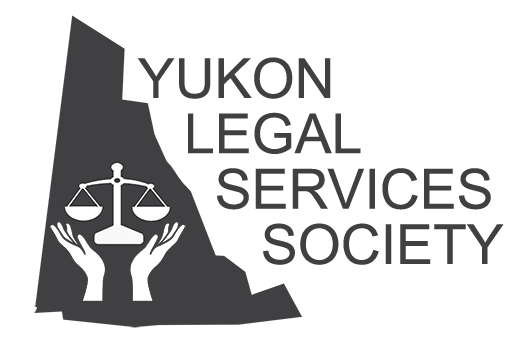Workplace Sexual Harassment Clinic
The Yukon Legal Services Society, funded by Justice Canada, has opened a new Clinic providing free and confidential legal advice and information related to workplace sexual harassment (WSH).
The Workplace Sexual Harassment Legal Clinic, staffed by a senior lawyer, can provide legal advice up to the point of litigation to those who believe they may have been sexually harassed in the workplace, who may have witnessed harassment or who wish to ensure that their workplace is a sexual harassment free zone. It can also provide more general legal advice, information and resources related to WSH.
The Clinic is also available to provide legal education on the issue and anticipates providing materials and making presentations to the public. We welcome the opportunity to partner with other organizations with similar mandates in providing public legal education and information.
The Clinic is located at #103-2131 2nd Avenue and staff are available for either in person or remote interviews with clients seeking legal advice on workplace sexual harassment issues. Appointments are made by contacting wsh@legalaid.yk.ca or by phoning 867-393-6219 or 867-393-6236. Clinic staff will also be visiting Yukon communities outside of Whitehorse on a monthly basis beginning – hopefully – in March 2022. A schedule of monthly community visits will be posted shortly.
Sexual harassment refers to a pattern – and in some severe cases, a single incident – of offensive or unwelcome behaviour which relates to an aspect of the victim’s sex, sexual orientation, gender identity or gender expression. The more serious an action and its impact on a victim, the fewer events are required to constitute harassment. The perpetrator’s intent is not important if the behaviour is something that they knew or should have known would be unwelcome. While sexual harassment may take place in any type of workplace, some types of workplaces, because of their structure, may be particularly prone to incidents of workplace sexual harassment.
Studies indicate that in some workplaces and industries in Canada, upward of 20% of women employees state that they have been sexually harassed although a much lower percentage officially report harassment. The numbers are even higher in northern Canada. But sexual harassment is not limited to one sex or sexual orientation, gender identity or expression. And its negative impact is felt by others including bystanders who witness it.
While most people recognize that a physical advance or a sexual invitation constitutes sexual harassment, the term actually encompasses a much wider scope of behaviour including but not limited to:
- Using sexually charged language, including making jokes, about sex, gender identity or presentation or sexual roles or stereotypes and using derogatory gendered terms,Making comments about a person’s body or appearance,
- Staring or “leering” at a person’s body,
- Misgendering a person or refusing to use their chosen pronouns,
- Sexual pictures or visuals being displayed where another person can see or in some cases, accidentally access them, and
- Spreading rumours about a person related to their sex, sexual orientation, gender identity or gender expression.
Much of the actual legal advice the Clinic focuses on explaining the law in the area of WSH to clients, helping them to determine whether their concern actually constitutes WSH, helping address circumstances which may pose an immediate physical or legal danger and referring them to local resources. Within the Access to Justice mandate however, there may be some limited additional scope to provide legal advice and services that would support a complainant’s litigation either with their own legal counsel or self-representing.
If you or someone you know is dealing with or is aware of workplace sexual harassment, contact the Workplace Sexual Harassment Clinic for free and confidential legal advice, information or resources.
Workplace Sexual Harassment Radio Ads
"Respectful Workplace" Radio Ad
"Employer Liability" Radio Ad
"Girls Have it Hard Enough" Radio Ad
"Creepy Cook" Radio Ad

